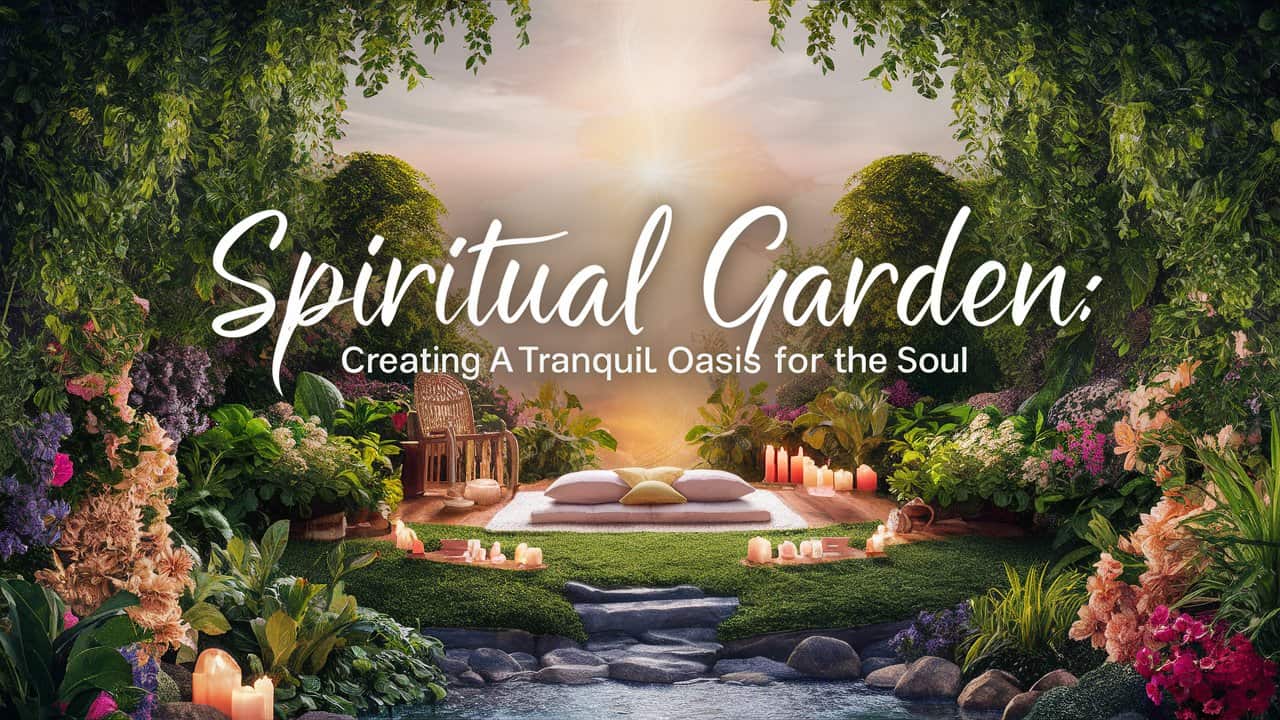In the hustle and bustle of modern life, finding moments of peace and tranquility is essential for our well-being. One way to achieve this is by cultivating a spiritual garden, a sacred space where you can connect with nature, meditate, and find inner peace. In this blog post, we will explore how you can create a spiritual garden infused with meditation, magical, and Zen themes to nourish your soul and uplift your spirit.
Embracing Magical Elements in Your Garden

Adding a touch of magic to your garden can elevate the spiritual experience and infuse it with a sense of wonder and enchantment. Consider planting flowers with mystical significance like lavender for healing or chamomile for relaxation. Incorporate sparkling fairy lights, wind chimes, and reflective ornaments to create an otherworldly atmosphere. By embracing magical elements in your garden, you invite a sense of the mystical into your everyday life, fostering a deeper connection to the world around you.
Cultivating Zen Serenity in Your Outdoor Sanctuary
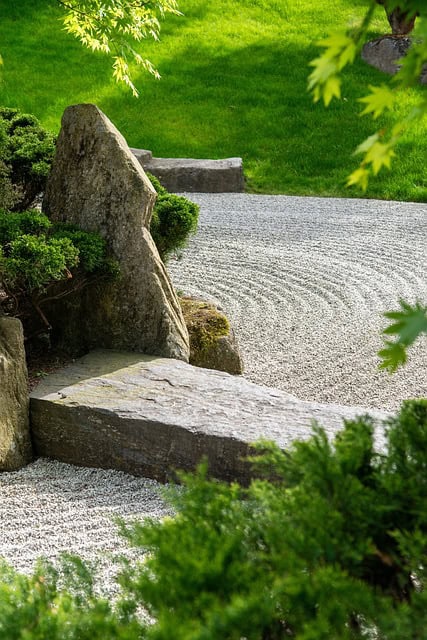
Zen gardens are renowned for their simplicity, balance, and tranquility. You can create a Zen-inspired space in your garden by incorporating minimalist design elements, such as smooth stones, raked gravel, and simple wooden structures. Arrange your garden in harmonious patterns that encourage contemplation and mindfulness. The act of tending to your Zen garden can become a meditative practice in itself, grounding you in the present moment and promoting a sense of serenity and calm.
Nurturing Your Soul in Nature’s Embrace
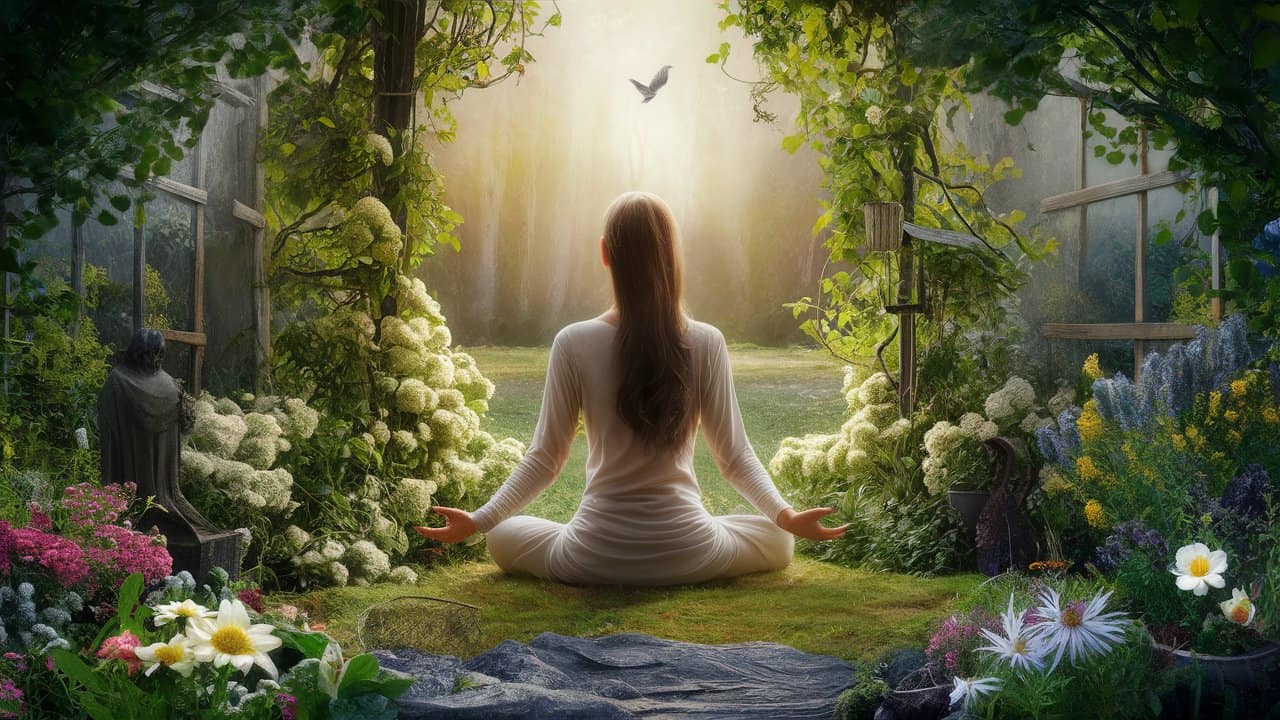
A spiritual garden is more than just a place to grow plants—it is a sanctuary for your soul, a retreat from the chaos of everyday life. Take time each day to visit your garden, breathe in the scents of blooming flowers, and listen to the symphony of birdsong. Allow yourself to be fully present in the beauty of nature, letting go of worries and distractions. In the embrace of your garden, find solace, peace, and rejuvenation for your spirit.
The Power of Meditation in the Garden

Meditation is a powerful tool for calming the mind and centering yourself. Imagine having a dedicated meditation spot in your garden where you can escape the noise of the world and immerse yourself in quiet contemplation. To create a meditation space in your garden, choose a peaceful corner surrounded by lush greenery. Place a comfortable meditation cushion or bench where you can sit and focus on your breath, allowing the sights and sounds of nature to soothe your soul.
Planting Spiritual Seeds Choosing Plants with Intention

When creating a spiritual garden, it is essential to choose plants with intention and meaning. Select flowers and herbs that hold significance in spiritual practices, such as rosemary for protection, sage for purification, and jasmine for spiritual connection. Each plant you cultivate in your garden can serve as a reminder of your spiritual journey and intentions, infusing the space with positive energy and symbolism.
Spiritual Garden Plant Ideas
Incorporating these plants and flowers into your spiritual garden enriches the tapestry of tradition and folk wisdom, bringing with them the sacred essences of purity, strength, divine blessings, spiritual radiance, and healing protection.
Lavender
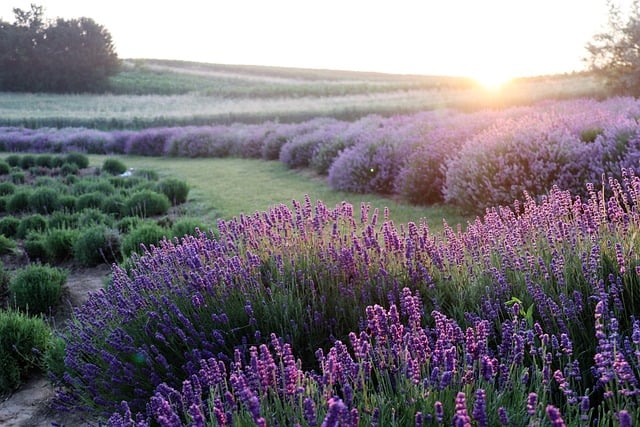
Lavender, with its distinctive calming aroma and clusters of vibrant purple blooms, embodies tranquility, healing, and spiritual clarity. This versatile herb has been revered for its therapeutic properties, promoting relaxation, inner peace, and spiritual rejuvenation. Its presence in a spiritual garden not only provides a sensory delight but also nurtures a serene and balanced atmosphere, inviting individuals to connect with their inner selves, find solace, and embark on a journey of self-discovery through the soothing embrace of this sacred plant.
Jasmine
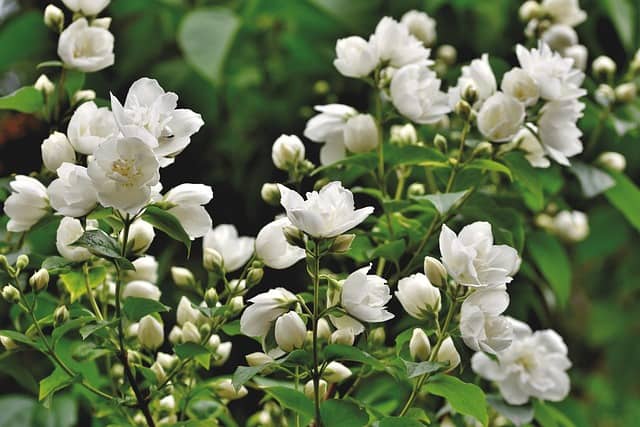
Jasmine’s enchanting fragrance and delicate white blossoms carry profound symbolism, epitomizing purity, love, and spiritual ascension. An emblem of inner beauty and divine grace, Jasmine has been associated with attracting positive energies, enhancing psychic abilities, and fostering spiritual connections. Its allure in a spiritual garden elevates the ambiance, infusing the space with a sense of purity, devotion, and spiritual illumination, inviting individuals to embrace the timeless mystique of this revered plant and cultivate a deeper connection with the spiritual realm.
Verbena
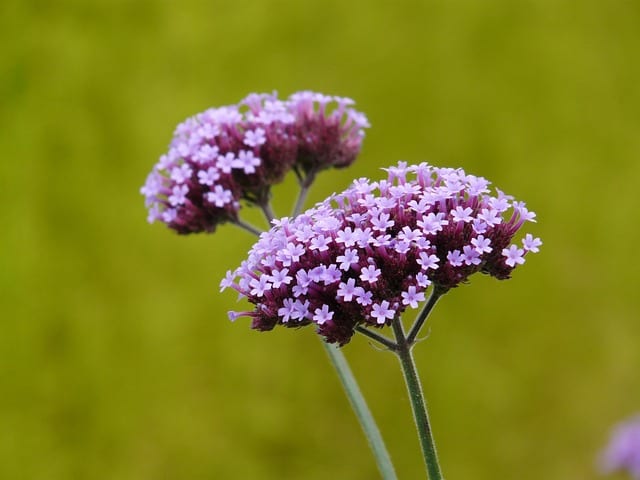
Verbena, characterized by its vibrant clusters of colorful blooms and invigorating lemony scent, is celebrated for its healing properties, protective qualities, and purifying essence. Revered for promoting spiritual growth, inspiring divine creativity, and fostering emotional equilibrium, Verbena enriches the spiritual garden with an aura of positivity and transformation.
Angel’s Trumpet (Brugmansia)
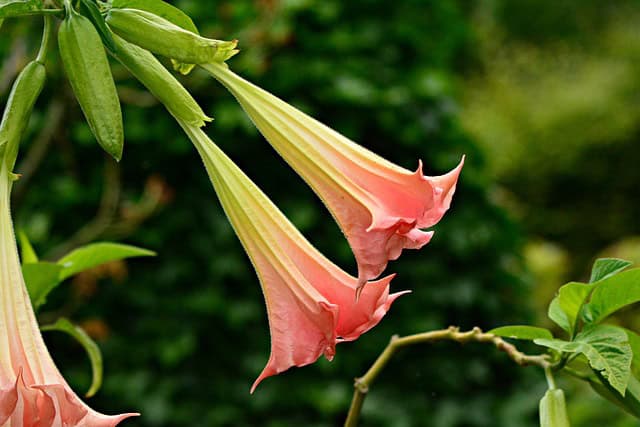
Angel’s Trumpet, with its pendulous and exquisitely fragrant flowers, is a captivating addition to a spiritual garden. Traditionally associated with dreaming, visions, and spiritual communication, this plant is revered for its ability to facilitate connections with higher realms and foster a sense of divine guidance. Its mesmerizing blossoms emit an enchanting aroma that fills the garden with an ethereal presence, creating an atmosphere that encourages introspection, reflection, and spiritual exploration.
Chamomile Soothing and Divine Blessings
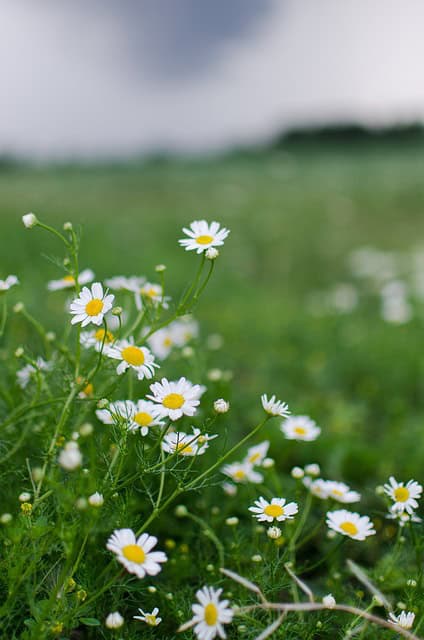
Chamomile has been utilized in folk medicine and spiritual practices for its calming properties and association with divine blessings. It has been used in rituals to attract positive energy and promote relaxation. Growing chamomile in your garden invites its gentle and soothing energy, promoting a sense of peace, divine blessings, and inner tranquility.
Sunflower
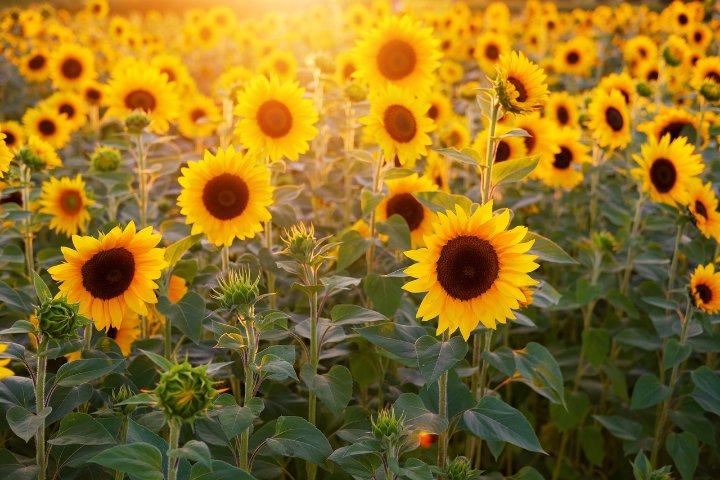
Sunflowers are revered for their vibrant blooms and their symbolic association with the sun. In many cultures, they are seen as representations of adoration, spiritual radiance, and the divine presence. Incorporating sunflowers into your garden allows you to bask in their uplifting energy, infusing your sacred space with the brilliance of spiritual radiance and positive vibrations.
Yarrow Sacred Healing and Protection
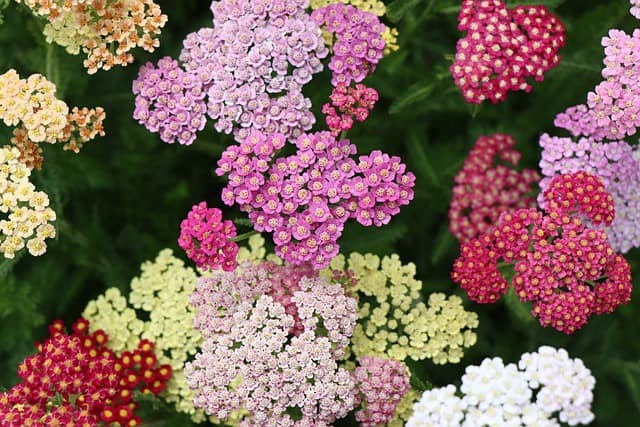
Yarrow has a long history in traditional and folk medicine, often associated with healing, protection, and divination. It has been used in rituals for its ability to impart emotional strength and enhance psychic abilities. By growing yarrow in your garden, you invite its sacred healing and protective qualities, creating a space that promotes emotional resilience, spirit healing, and psychic awareness.
Echinacea Immunity and Spiritual Strength
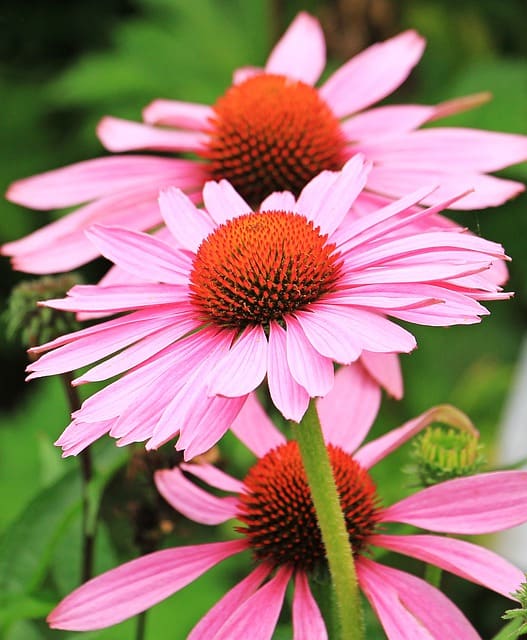
Echinacea, also known as purple coneflower, holds significance in many Native American traditions for its healing properties. It is revered for its ability to enhance spiritual strength and fortify the body’s natural defenses. By cultivating echinacea in your spiritual garden, you can invoke its energy of resilience, promoting spiritual fortitude and physical vitality.
Rose
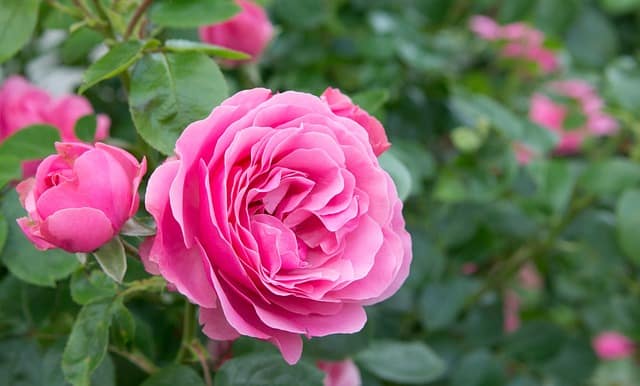
The rose has held profound symbolism in numerous cultures, symbolizing love, devotion, and spiritual purity. It has been used in sacred rituals, ceremonies, and offerings to evoke emotions of love and reverence. Incorporating roses into your spiritual garden infuses the space with the essence of love, devotion, and spiritual attunement.
Honeysuckle

The sweetly fragrant and twining blossoms of Honeysuckle evoke a sense of enchantment and wonder within a spiritual garden. Symbolizing devotion and everlasting love in folklore, Honeysuckle is believed to attract positive energies, promoting happiness and nurturing connections with the divine. Its alluring blooms and delicate scent infuse the garden with an atmosphere of love, joy, and spiritual harmony, inviting individuals to embrace the profound beauty and abundance of the spiritual journey.
Peony
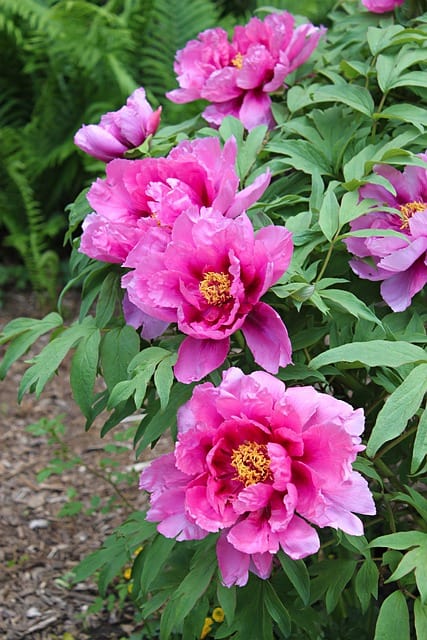
Peony, renowned for its opulent and extravagantly beautiful blooms, symbolizes prosperity, compassion, and spiritual abundance. In Feng Shui, these magnificent flowers are considered auspicious, believed to attract positive energy and good fortune.
Lotus Symbol of Purity and Enlightenment
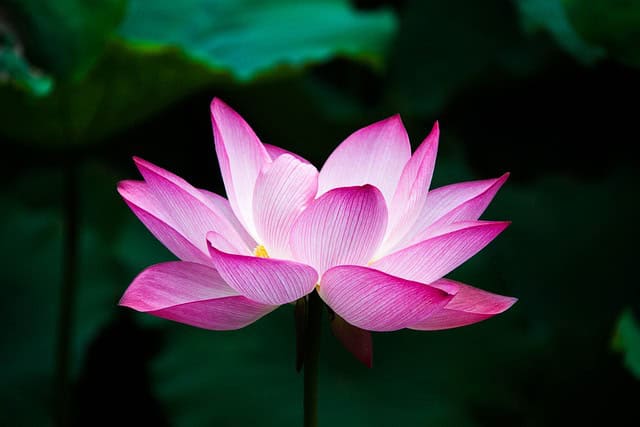
The lotus flower carries profound symbolism in various religious traditions, particularly in Buddhism and Hinduism. It is associated with purity, spiritual enlightenment, and the transcendent beauty that emerges from the murky depths.
Blue Lotus
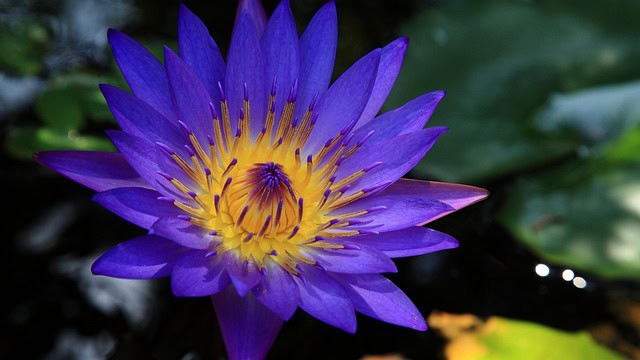
Blue Lotus, also known as the Sacred Lily of the Nile, carries profound spiritual significance in ancient Egyptian and Hindu traditions. Revered for its association with enlightenment, higher consciousness, and profound spiritual awakening, Blue Lotus exudes an essence of transcendence and spiritual illumination. Its captivating blooms evoke a sense of mystery and wonder, creating an atmosphere of spiritual contemplation, unity, and inner awakening within the spiritual garden.
Moonflower
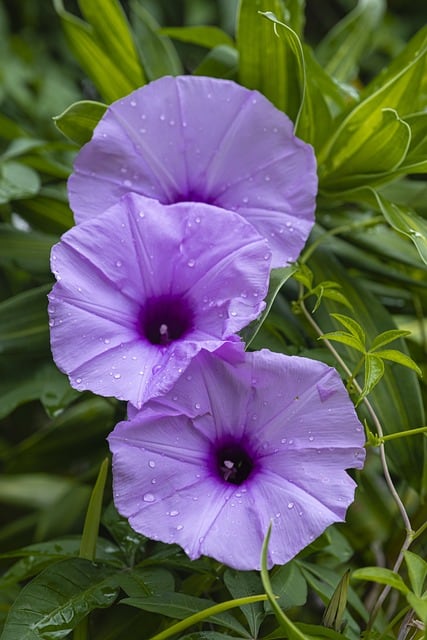
The enchanting beauty of Moonflower, with its nocturnal blooms and captivating fragrance, embodies the mysteries of the moon, intuition, and spiritual illumination. Its ethereal presence in a spiritual garden infuses the space with a sense of enchantment and spiritual connection. Moonflower’s alluring blossoms create a serene and magical ambiance, inviting individuals to embrace the spiritual essence of the night and engage in introspective practices under the gentle glow of the moon.
Passionflower

Passionflower, with its intricate and captivating blossoms, represents the Passion of Christ in Christian symbolism and is associated with spiritual devotion, surrender, and tranquility. Its presence in a spiritual garden fosters an ambiance of emotional balance, spiritual connection, and inner peace.
Calendula
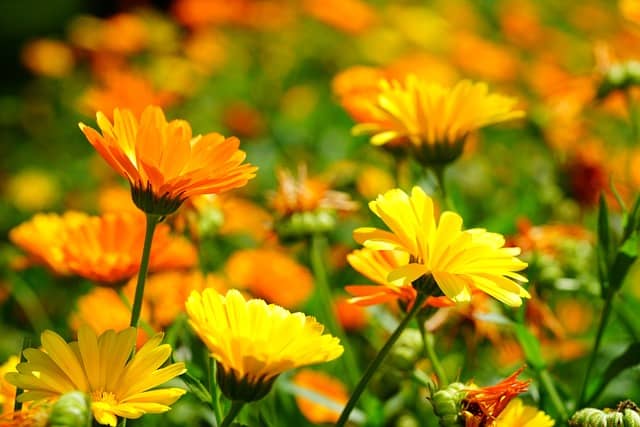
Calendula, also known as Marigold, presents itself with its cheerful orange and yellow flowers, radiating joy, protection, and spiritual rejuvenation. Embodying vitality, abundance, and empowerment, Calendula weaves a tapestry of positivity, creativity, and spiritual abundance within the garden.
Rosemary
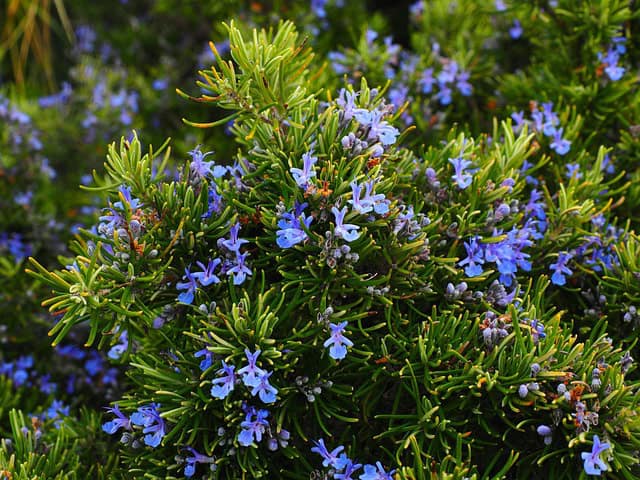
Rosemary, distinguished by its fragrant leaves and delicate blue flowers, embodies symbolism of remembrance, protection, and purification. Utilized in rituals for blessings, purification, and spiritual guidance, Rosemary bestows mental clarity, emotional equilibrium, and spiritual growth upon the garden.
Iris
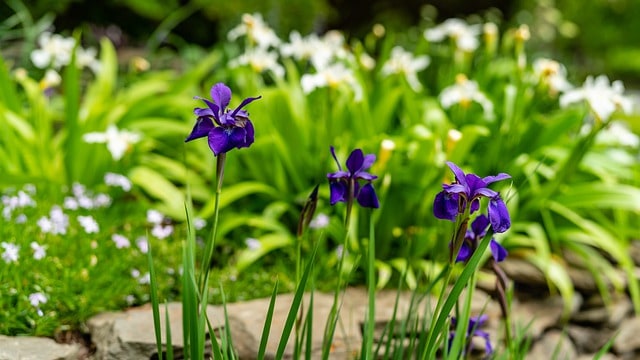
Iris, adorned with its striking and intricate blooms in various hues, signifies wisdom, intuition, and divine connection. Serving as a poignant symbol of spiritual guidance, wisdom, and personal transformation, Iris instills an inviting aura of inner knowing, spiritual insight, and connection to the higher self within the garden. Its timeless allure encourages individuals to embrace their intuitive faculties, seek profound wisdom, and embark on a transformative journey of spiritual growth and self-discovery under the auspice of this emblematic plant.
Morning Glory
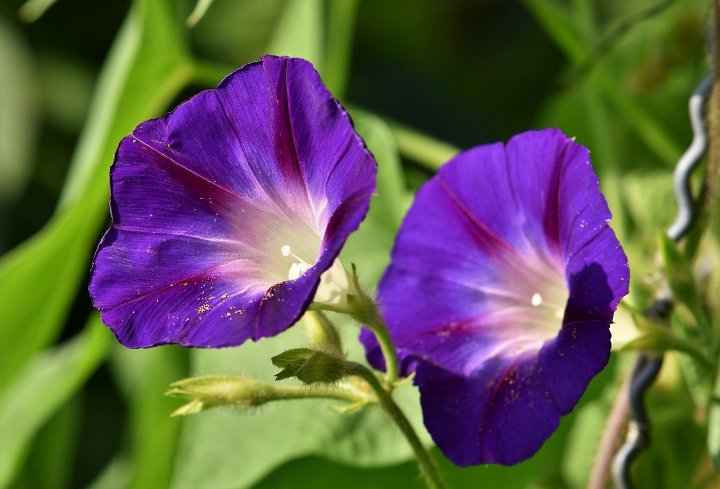
Morning Glory, with its resplendent, trumpet-shaped flowers, embodies the symbolism of new beginnings, spiritual enlightenment, and the cyclical nature of life. Tied to themes of spiritual awakening, inner transformation, and renewal, Morning Glory serves as a harbinger of self-discovery, enlightenment, and spiritual growth within the spiritual garden.
Oak Tree Strength, Protection, and Wisdom

The mighty oak has been revered in many cultures as a symbol of strength, protection, and wisdom. It has been associated with deities in ancient mythologies and used in rituals to invoke the qualities of endurance and resilience. The oak tree can be a powerful presence in your garden, embodying the enduring spirit of protection and wisdom in your sacred space.
Each of these plants carries its own unique spiritual significance, holding the potential to enrich your spiritual garden with their healing, purification, grounding, and devotional energies. By incorporating these plants into your garden, you can create a sanctuary that resonates with the timeless wisdom and sacred essence of tradition and folklore.
Garden Layouts
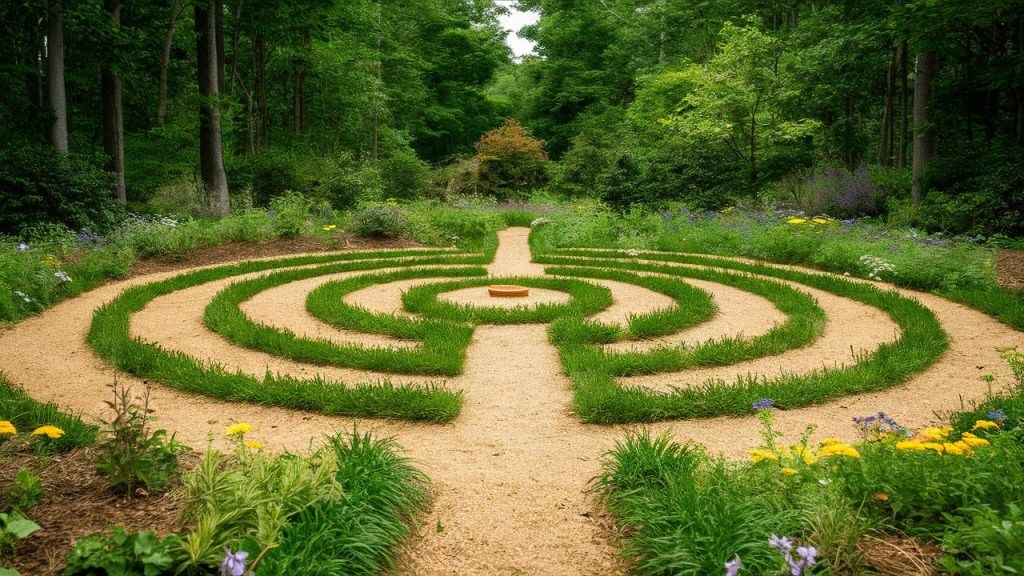
Designing a spiritual garden involves not only the choice of plants, but also the layout and arrangement that can evoke a sense of tranquility, mindfulness, and spiritual connection. Here are several layout ideas to create a harmonious and meaningful spiritual garden:
- Zen Garden
Create a serene and minimalist Zen garden with carefully arranged rocks, raked gravel, and simple yet elegant plantings. This layout promotes calmness, balance, and mindfulness in your garden. - Sacred Grove
Designate a secluded area where you can plant a sacred grove of trees. This space can serve as a place of retreat and reverence, inviting you to connect with the wisdom and energy of the trees. - Elemental Corners
Dedicate different corners of your garden to the elements—earth, air, fire, and water. Each corner can be adorned with plants, sculptures, or natural features that symbolize the respective elements. - Labyrinth Garden
Create a labyrinth in your garden, providing a contemplative path for walking meditation and reflection. Plant fragrant herbs and flowers along the labyrinth to engage the senses. - Ritual Space
Design a designated ritual space with an altar, ritual tools, and seating for sacred ceremonies. This space can be adorned with symbolic elements that resonate with your spiritual beliefs and practices.
Inviting Sacred Rituals into Your Garden Sanctuary
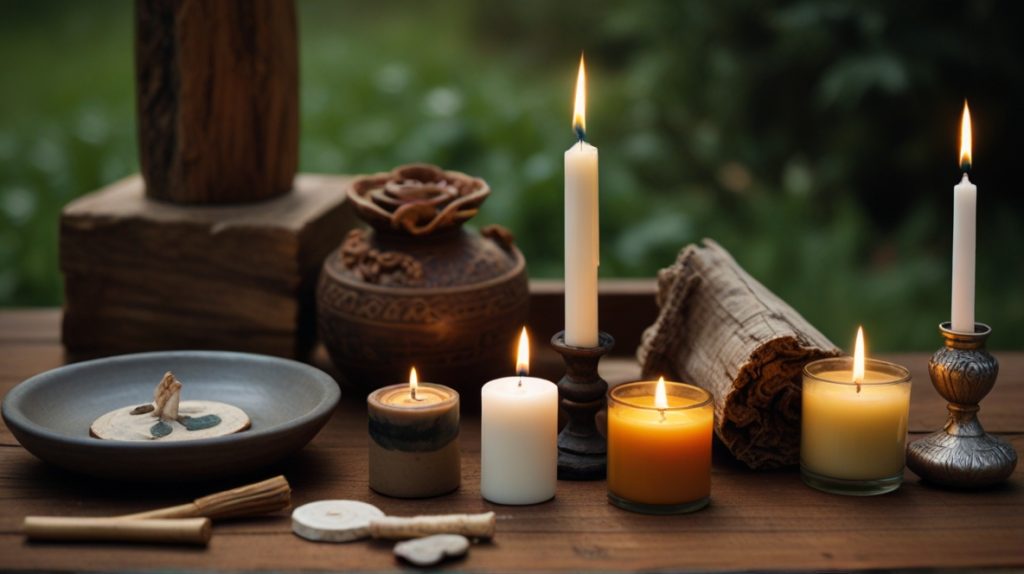
Incorporating sacred rituals into your garden practice can deepen your spiritual connection to the natural world. Perform rituals such as smudging with sage to cleanse the energy of your space, setting intentions during the new moon, or meditating under the full moon’s glow. By honoring the cycles of nature and engaging in sacred practices in your garden, you create a profound sense of belonging and unity with the earth and cosmos.
- Sacred Ritual Space
Set aside a space for sacred rituals such as smudging, blessing ceremonies, and honoring the elements. This area can be adorned with symbolic objects, such as an altar, candles, and incense, to facilitate your spiritual practices. - Sacred Offerings
Create a space for making offerings to the earth and spirits. Use this area for leaving offerings of herbs, flowers, or grains as a gesture of gratitude and reverence for the natural world. - Walking Meditation Path
Design a winding path in your garden where you can practice walking meditation. Embellish the path with aromatic herbs, stepping stones, and wind chimes to enhance the meditative experience. - Moon and Sun Practices
Set up a space for moon gazing and sun salutations. Use this area for moon rituals, sun salutations, and connecting with the celestial energies during specific lunar and solar phases.
Conclusion
Creating a spiritual garden infused with meditation, magical, and Zen themes is a transformative journey that can enrich your life in profound ways. By cultivating a space that nourishes your soul, you invite peace, harmony, and balance into your daily existence. Whether you seek moments of contemplation, connection to the mystical, or serenity in simplicity, your garden can become a sacred oasis where you can find solace and renewal. Embrace the magic of nature, tend to your spiritual seeds with care, and allow your garden to become a beacon of light and love in your life.


